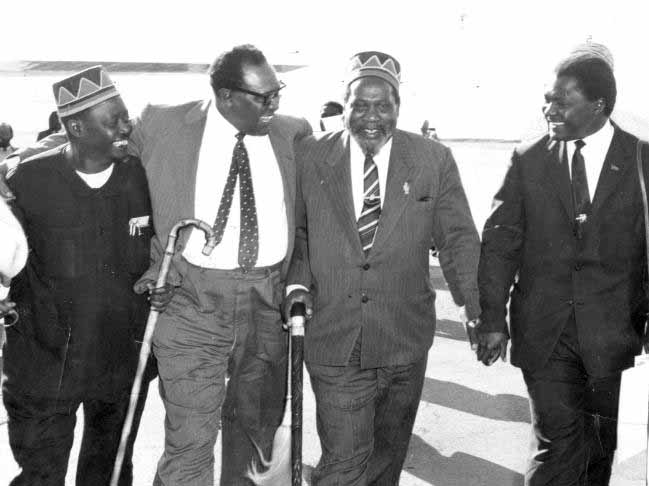×
The Standard e-Paper
Home To Bold Columnists

Jaramogi Oginga, Joseph Murumbi, Jomo Kenyatta and Tom Mboya at JKIA in October 1965 [File]
Kenya African National Union (Kanu), the party that strode the country like a colossus, almost collapsed barely three years into existence. Formed on May 14, 1960, Kanu was one of the two major political parties birthed in preparation for Independence. The other party was Kenya African Democratic Union, which was eventually swallowed by Kanu after Kenya attained self-rule.